Garden sleeper ideas: 10 ways to add these timber beams to your landscaping plans
Try these garden sleeper ideas for your borders, edging, and more – perfect for adding a rustic look to your space
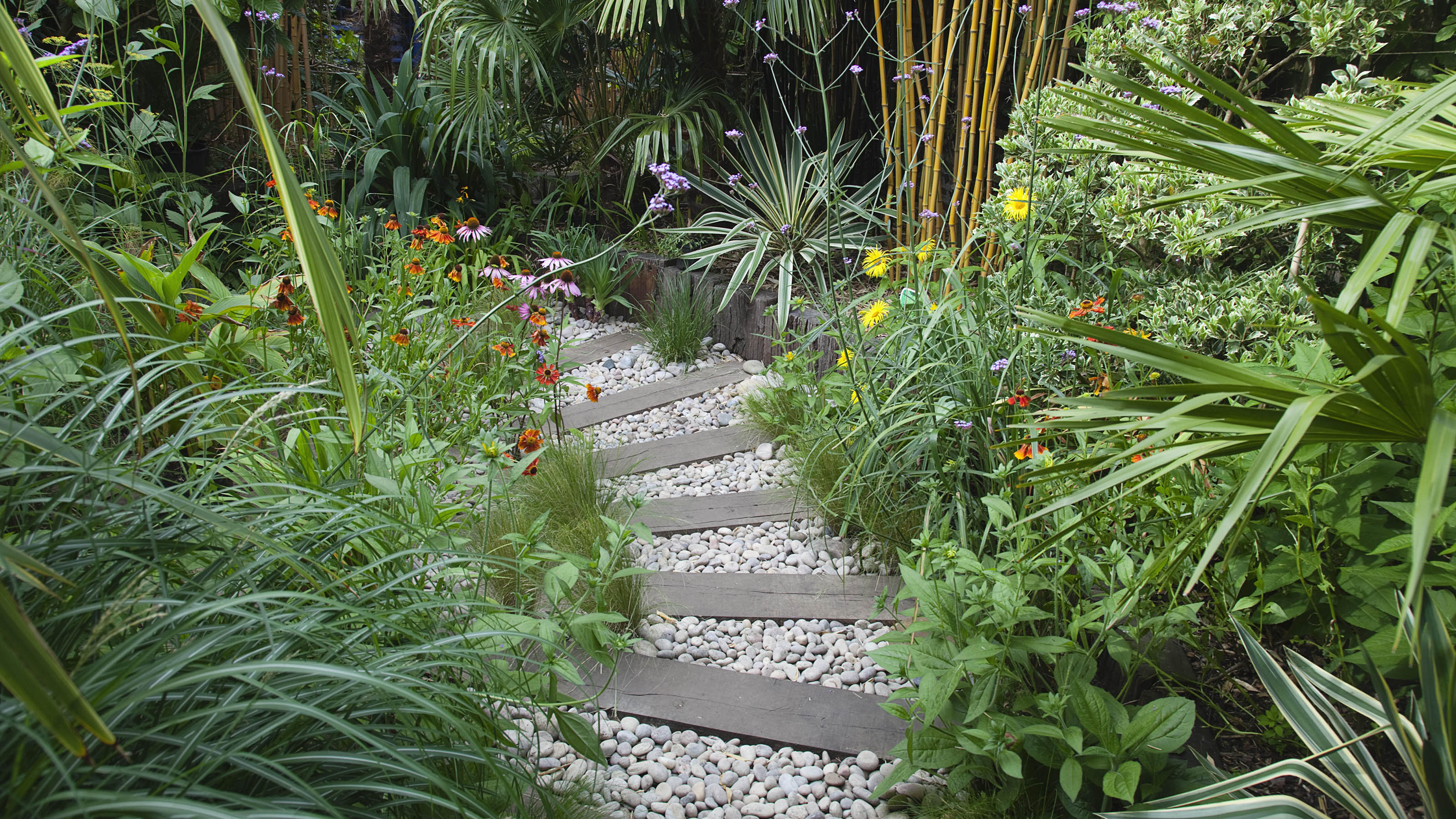

Garden sleeper ideas are a popular choice for outdoor spaces, and it's easy to see why. Traditionally used to support railway tracks, these sturdy, wooden beams can offer a plot tons of rustic charm.
Garden sleepers are super versatile too, and as you'll soon see, can be used for all kinds of landscaping projects. From raised garden beds to paths and fences, they bring a naturalistic, laid-back vibe to any style of plot. They can be bought brand new from specialist shops or some garden centers in a variety of finishes, woods, and sizes. Or, opt for reclaimed versions for an extra dose of character.
Whether you're updating your garden or starting afresh, they're definitely a material to consider. We've rounded up lots of gorgeous garden sleeper ideas for you to peruse, to get you inspired to try them in your outdoor space. Just keep scrolling to discover them.
Are garden sleepers safe to use?
First things first – the safety precautions. You may have heard of garden sleepers as not being safe to use, due to something called Creosote. This is a protective coating that was traditionally applied to deter pests and make the wood more weatherproof. However it turns out that it is, most probably, carcinogenic to humans and is bad for the environment. Plus, it can seep out of your sleepers when warmed by the sun, leaving a sticky mess over your plot.
For these reasons, it's best to opt for new garden sleepers for your projects, especially for those which you are likely to have contact with on a regular basis. If you still want to use old ones, say for a path, handle them with gloves, and only cut or sand them outdoors, whilst wearing a protective mask.
Other than that, there isn't too much to worry about with garden sleeper ideas – just be prepared for a bit of heavy lifting.
1. Border your veg beds
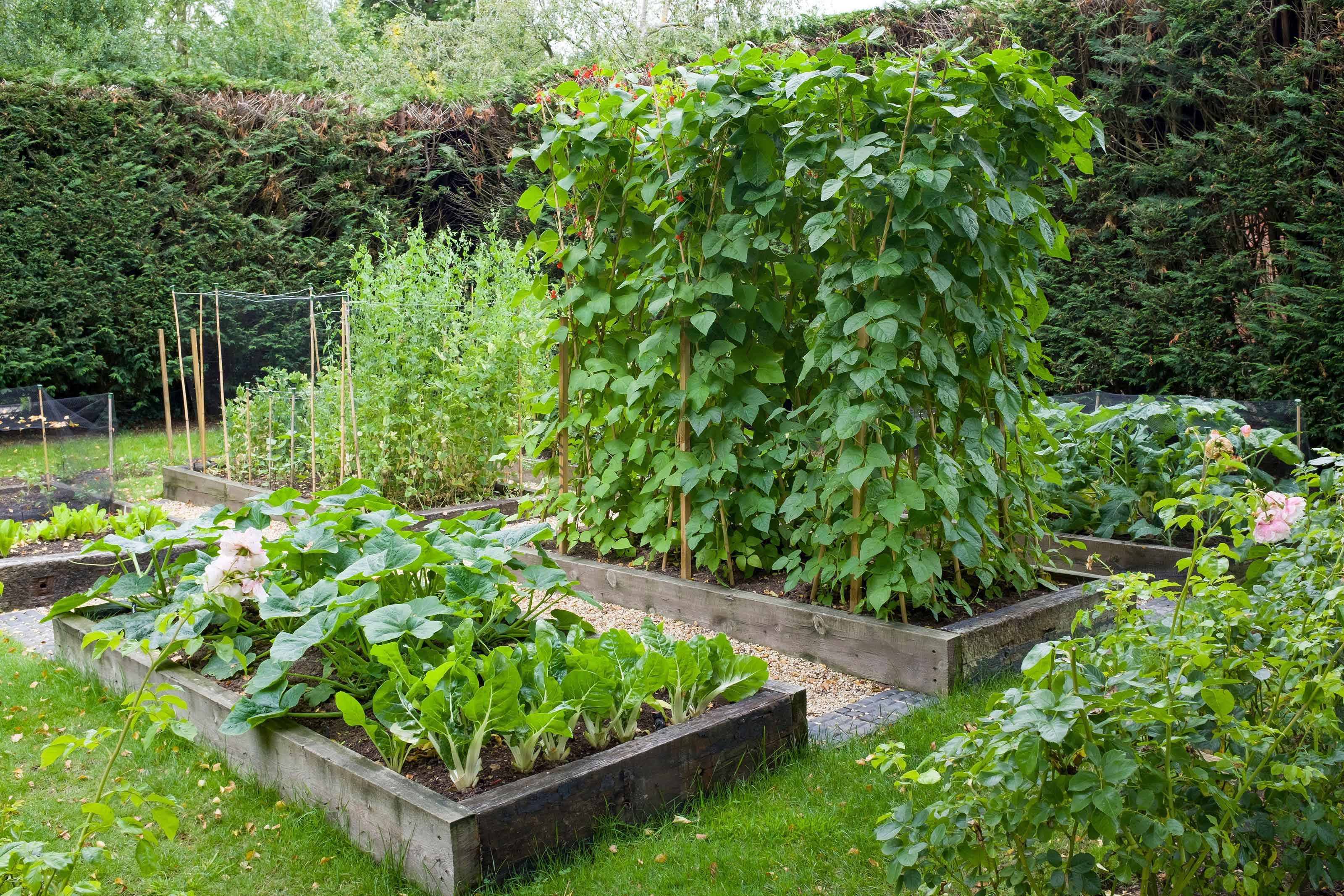
Garden sleeper ideas are an easy yet stylish solution for raised beds
Building raised beds is made easy with the use of garden sleeper ideas. They make the perfect base for growing all your own veggies at the bottom of your plot, and are durable and sturdy enough to last for years.
Just opt for a single height, or stack them up for even easier access – your space will feel more defined in no time. Want more inspiration? Take a look at our kitchen garden ideas.
2. Use them as steps
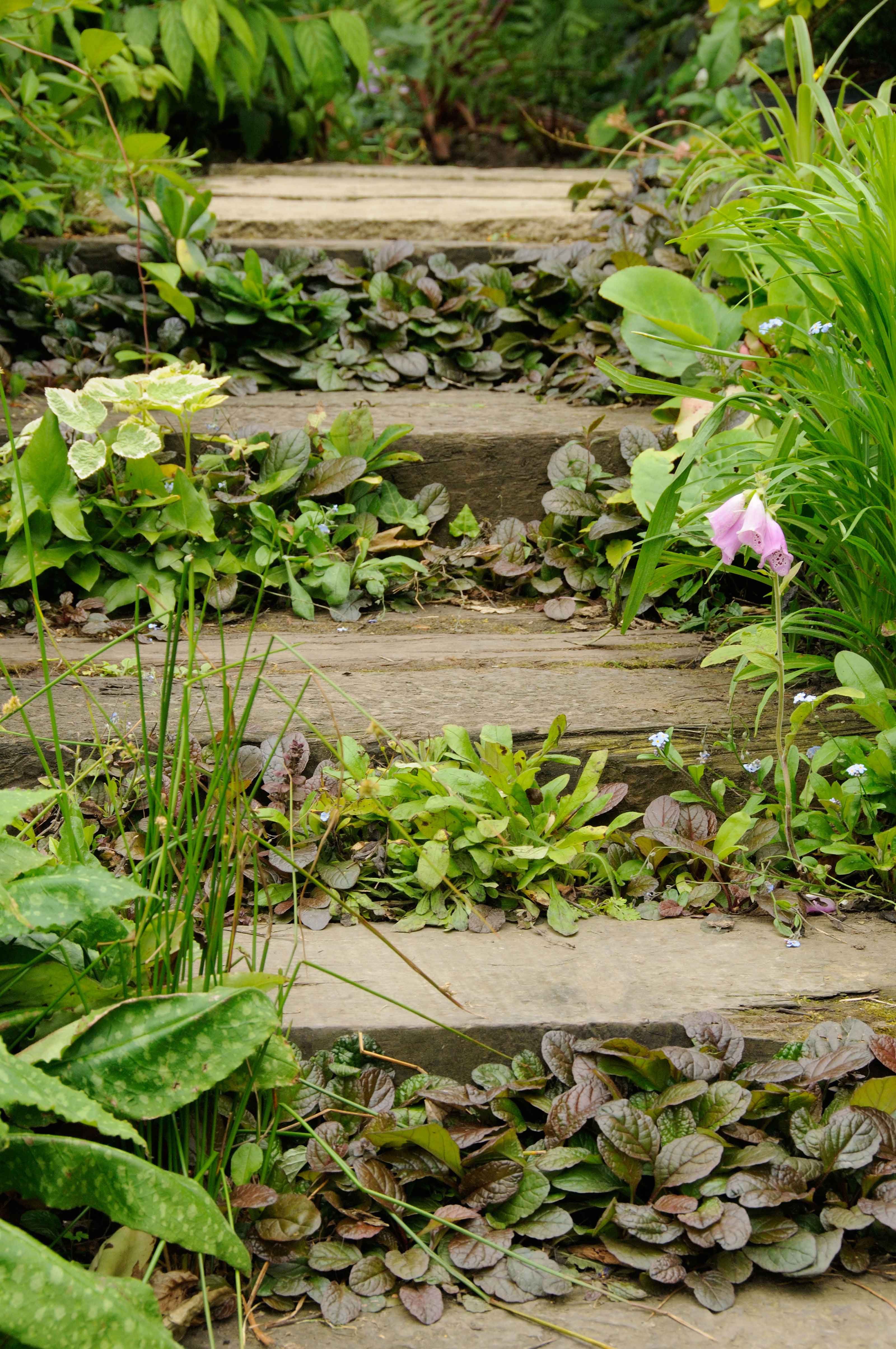
Give your steps tons of charm with garden sleeper ideas
Garden sleepers make a great choice for garden steps ideas, offering a naturalistic appearance that works beautifully in modern and cottage-style plots alike.
Soften the look further by planting low-growing foliage in the gaps between each – try creeping thyme or creeping jenny for hardy, evergreen options. For something a little more flowery, opt for forget-me-nots – their blue blossoms bring a soothing sense to any scene.
3. Create a show-stopping fence
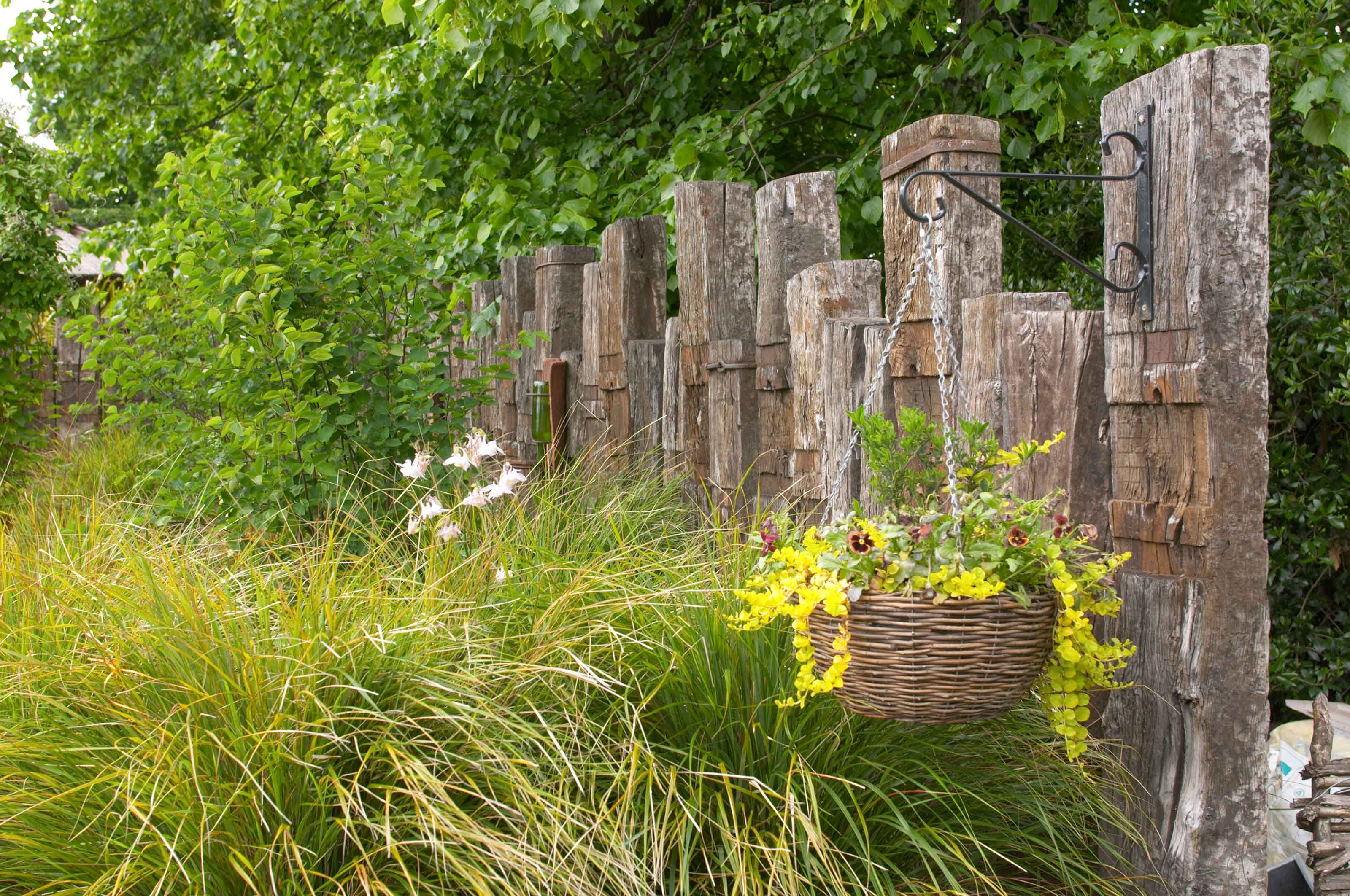
A fence made from sleepers is bound to turn heads
Garden sleepers that have a weathered appearance are great for adding extra personality to a plot. And, one way to really turn heads is to use them as a unique garden divider.
Whether you're using them to screen off your garden's 'rooms' or the neighbors, a fence built from sleepers is full of rustic charm. We love the difference in heights here which only adds to the eclectic, artsy look.
Of course, a hanging basket is always a welcome addition to an outdoor scene, especially when filled with the best plants for hanging baskets. Suspend from a bracket for a lovely finishing flourish.
Like the look? Head over to our garden fence ideas feature for more designs.
4. Put your potted plants on display
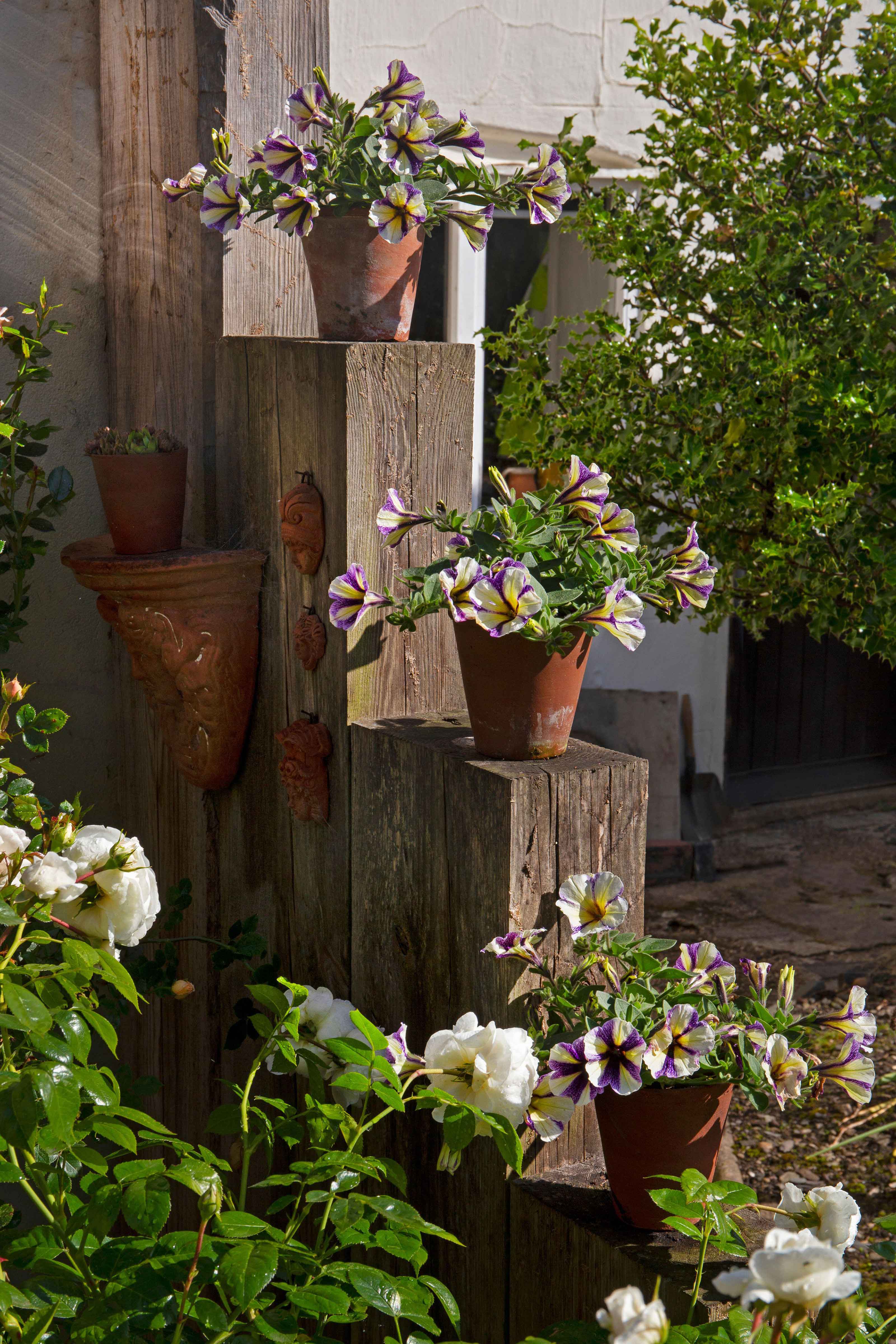
Showcase your favorite flowers with the help of garden sleeper ideas
Love a spot of container gardening ideas? Then give your well-tended planters pride of place with the help of garden sleeper ideas.
This step-like structure adds plenty of vertical visual interest and, adorned with the bright stripes of petunias, gives the space a playful tone. What's more, there's room for handy hooks at the side for hanging additional terracotta ornaments, which add to the decorative look.
It's also a useful way to add a subtle screen between sections of your garden, to up the sense of privacy.
5. Use garden sleeper ideas for your pathways
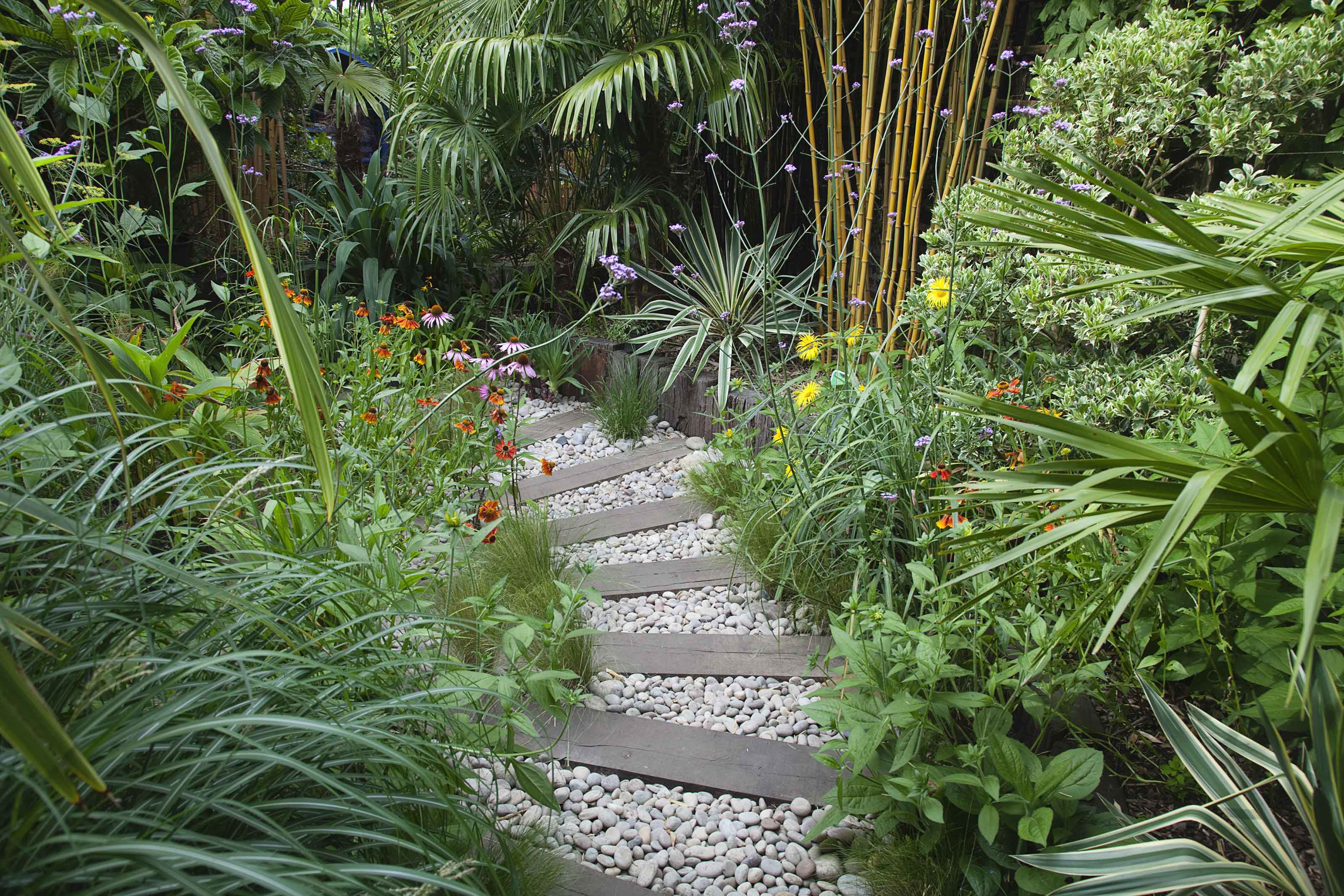
We love the mixture of textures on this curved garden path
Sleepers are a fantastic choice for garden path ideas as they are tough and fuss-free yet stylish. Here, narrow widths have been interspersed with gravel for a textural look. Meanwhile, the complementary tones of grey add a sense of chic.
Sleepers have been used to edge the pathway too, helping to define the gradually descending curve from the verdant borders either side. These are full of the likes of heleniums, echinacea, verbena bonariensis, and plenty of tall foliage to add to the sense of intrigue.
6. Combine with a pond
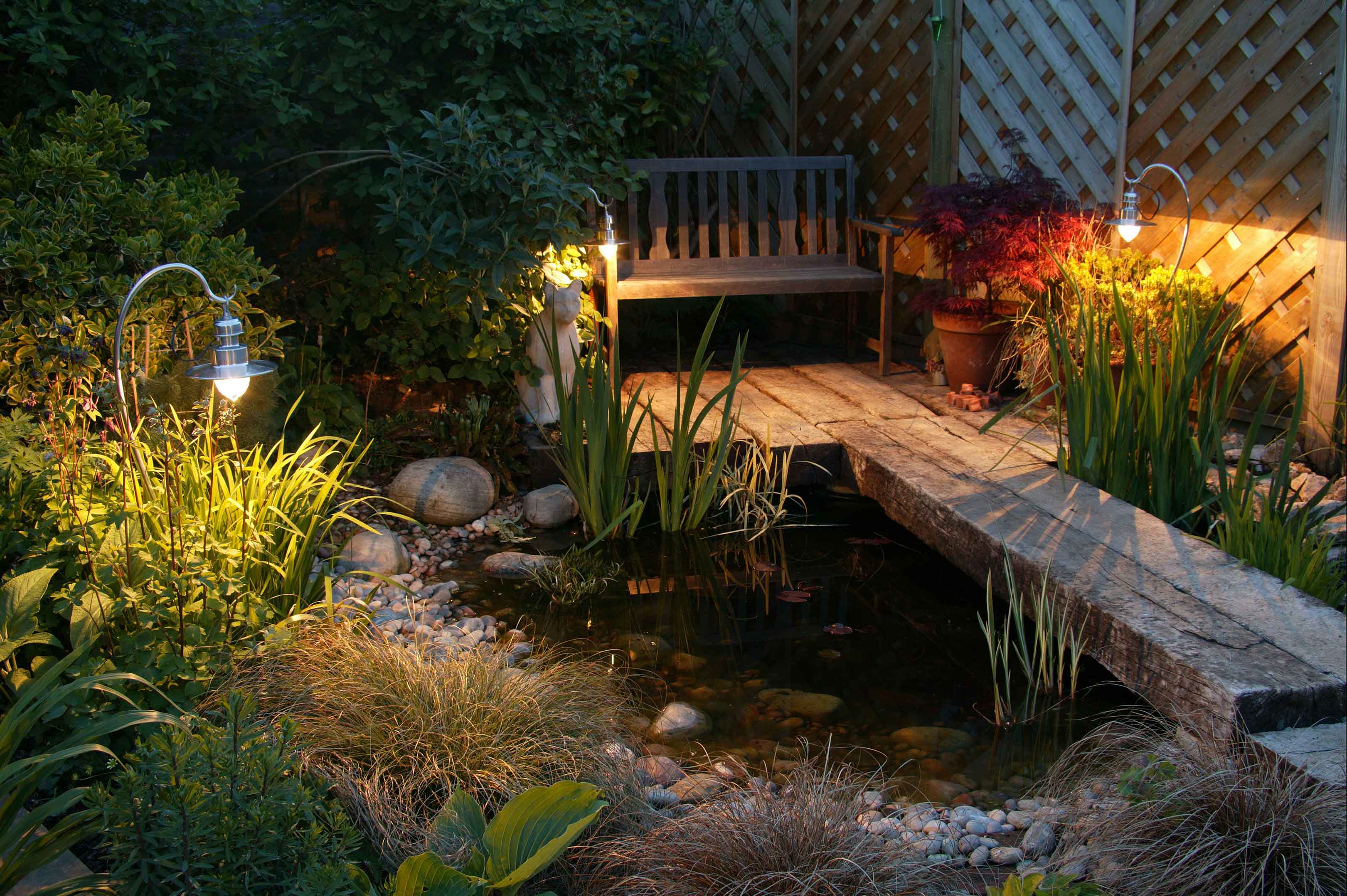
Create a walkway and miniature deck with garden sleeper ideas
Try combining your garden pond ideas with sleepers for an enchanting look. This tucked-away seating area is a lovely example.
It's been transformed into a real destination spot thanks to the small bridge and decked space made from weathered sleepers – the perfect place to retreat from the daily hubbub.
We love the garden lighting too, which strikes a balance between whimsical and contemporary.
7. Edge your flowerbeds
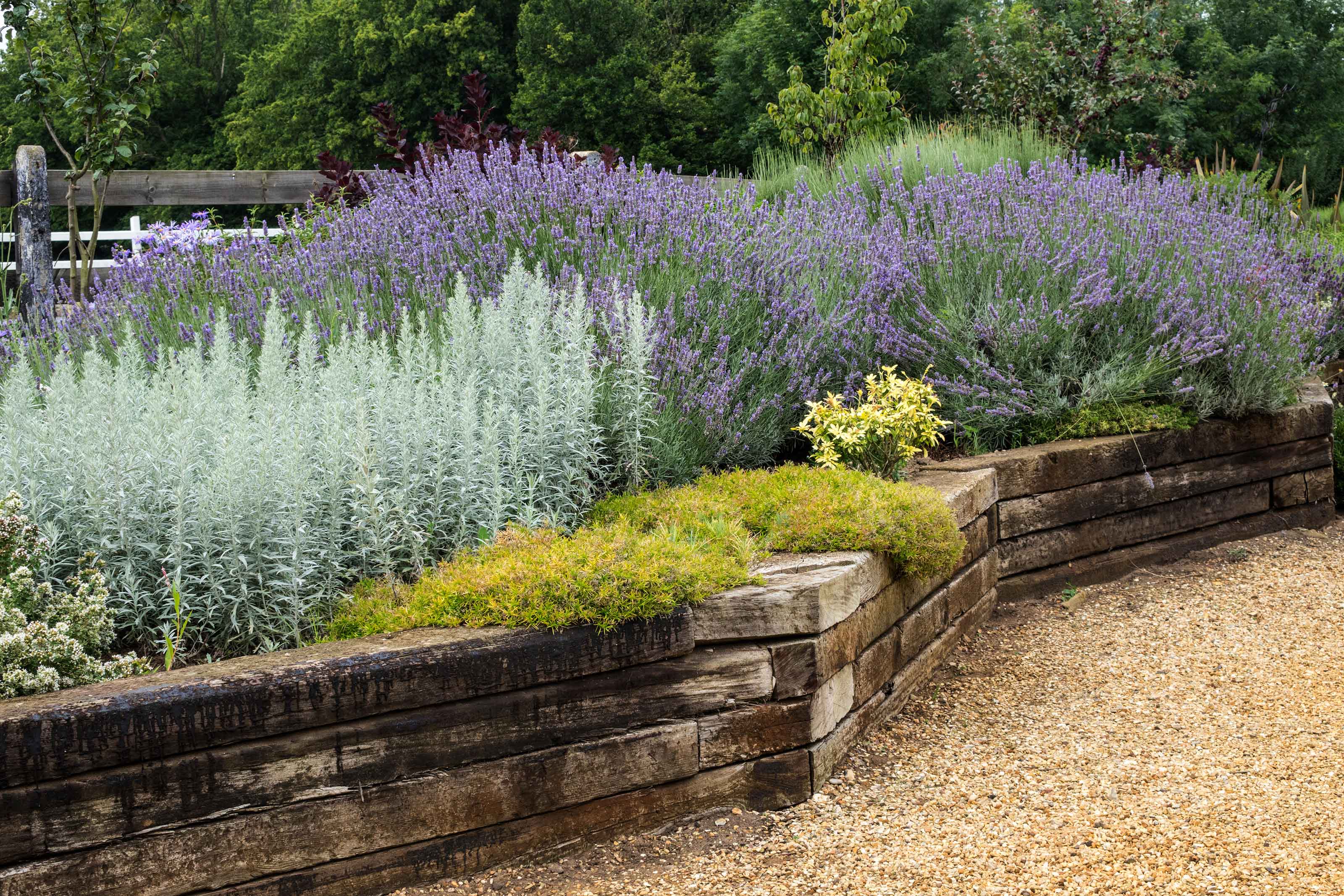
Dark-hued sleepers offer a sturdy border for flowerbeds
These garden sleepers, laid flat and layered up upon one another, make an ideal border for raised flowerbed ideas.
The distressed dark hue makes a distinctive contrast against the billowing florals above. We especially love the vibrant swathe of lavender, which is made even more impressive due to its elevated height. Take a look at our guide on how to grow lavender if you'd like to recreate the look, and why not try pairing with the vivid lime-yellow tones of sedum, too?
8. Use to define levels on sloped plots
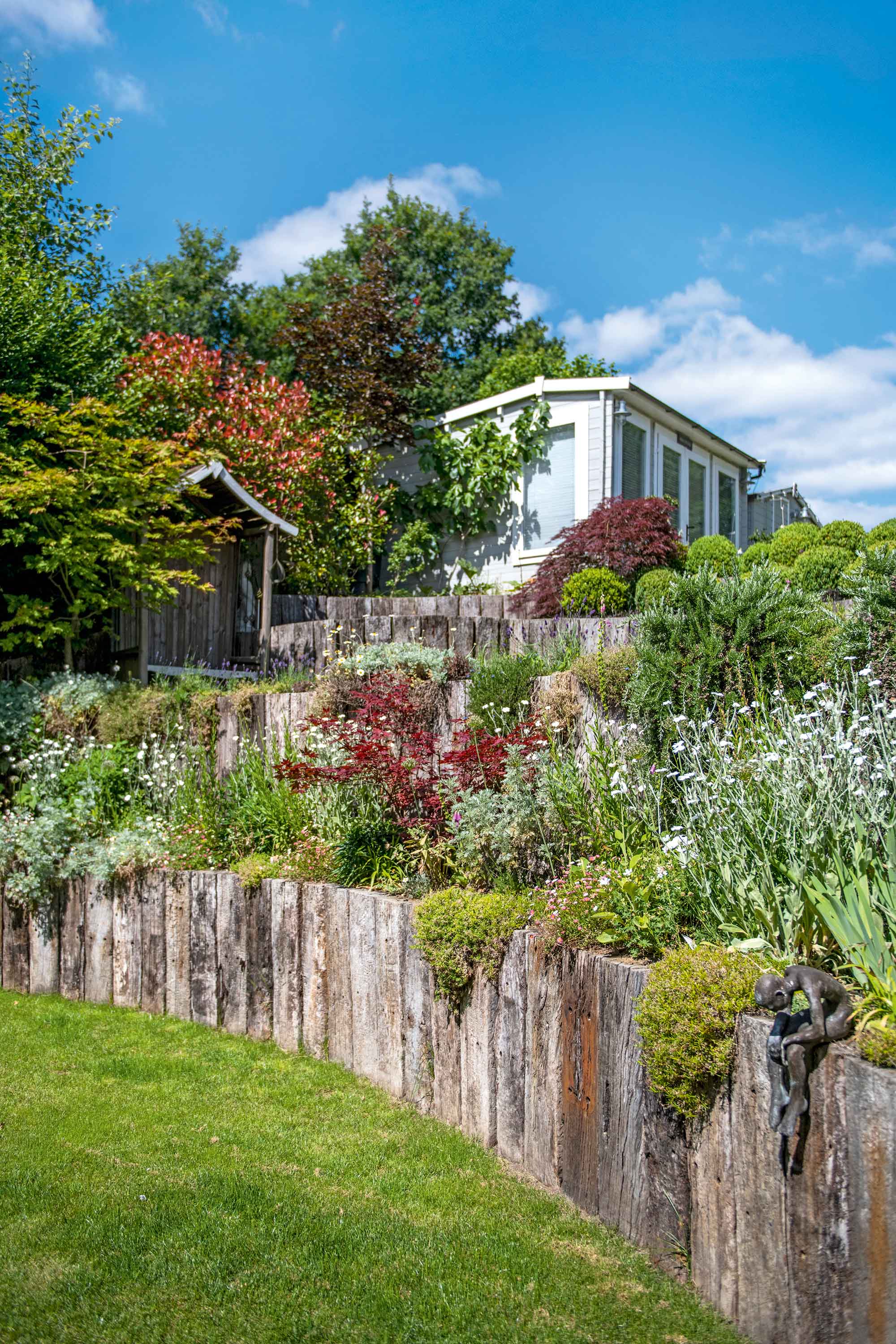
Draw the eye upwards with rows of garden sleepers
Looking for tiered garden ideas? Try bringing garden sleeper ideas into the mix.
In this beautiful space, sleepers have been used on their ends to create a striking solution to edge the multi-levelled flowerbeds. The finished look draws the eye upwards and provides plenty of visual interest, whilst maintaining a cohesive look.
9. Work them into your decking
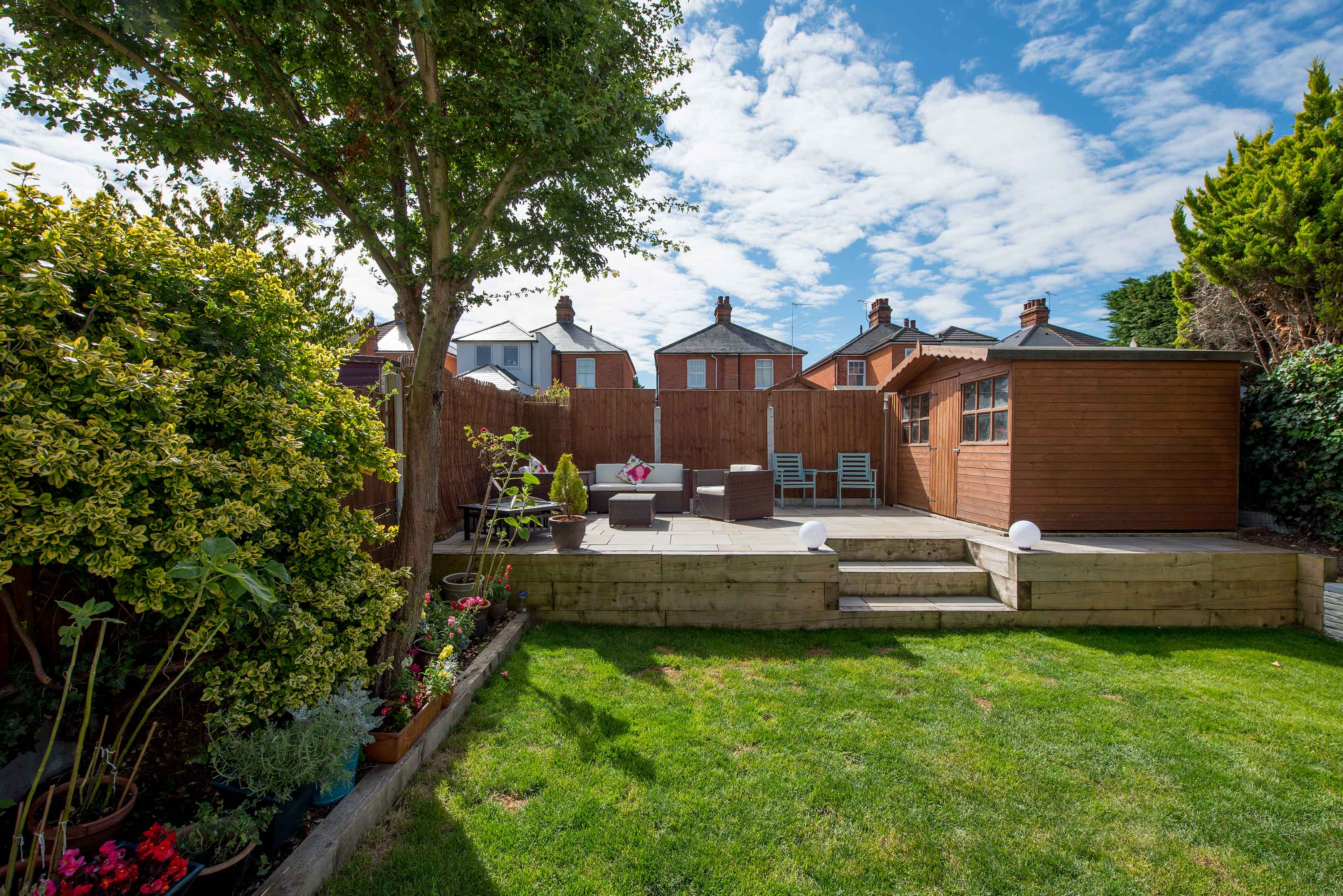
Garden sleeper ideas can be used for larger garden structures
Garden sleeper ideas are a great alternative to more traditional materials when it comes to decking. And if you opt for new ones, the finish can feel sleek and chic.
This design sports integrated steps, and is paired with pale paving to add to the contemporary finish. Spherical lights either side frame the entrance, leading the way to a laid-back seating zone and garden building.
Take a look at our decking ideas for plenty more design and styling inspiration.
10. Make a gravel garden
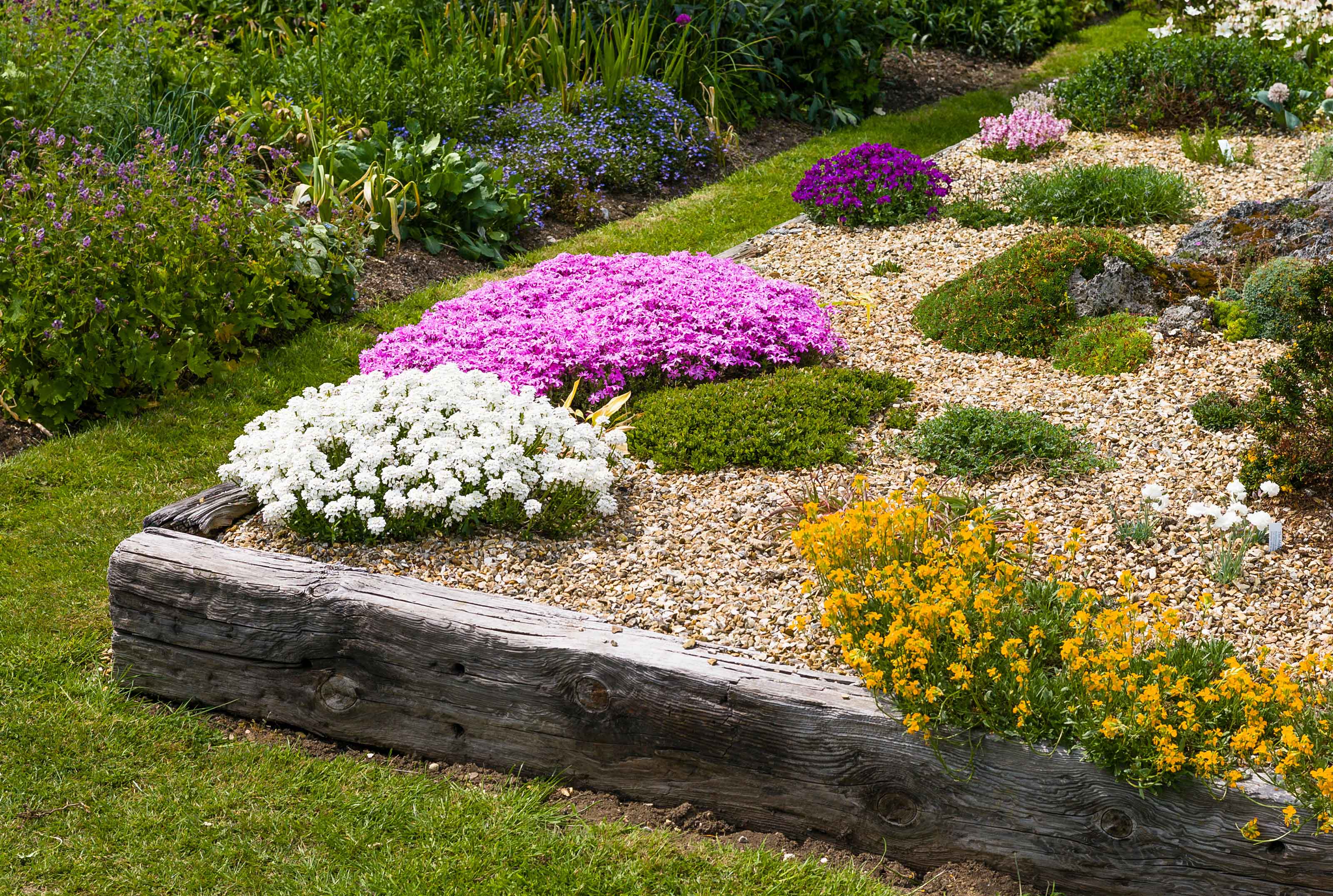
A single-levelled raised bed made from reclaimed garden sleepers makes the perfect home for this alpine scene
We love a gravel garden. They're super easy to maintain, they look gorgeous, and there are tons of interesting alpine plants and succulents to grow.
The knots and gnarls in this structure add to the characterful finish and look fantastic against the bright blooms above. It's a straightforward way to give your garden a unique edge.
Take a look at our small rock garden ideas for more inspiration.
How do you join garden sleepers together?
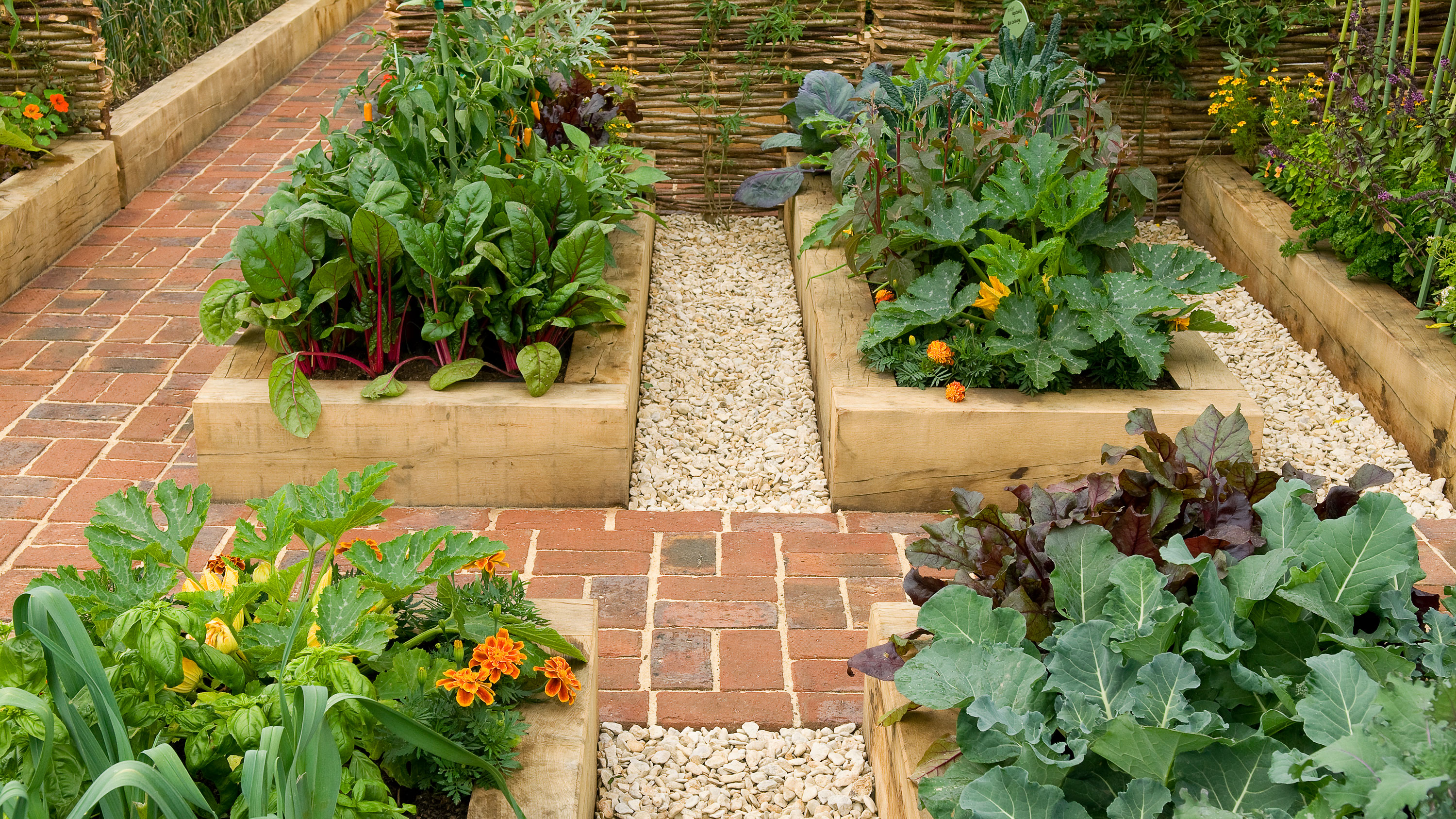
Join your sleepers to make sturdy garden beds
Sleepers can be joined together at the corners using timber screws, explain the experts at Garden Sleepers. You can also use wooden dowels, or steel rod pins which are good for hardwood boards.
Metal plates and corner braces are useful when making raised beds, as they will keep the structure's shape supported.
If you want to join your garden sleeper ideas together lengthwise, you can use straight brackets which are inexpensive to buy.
Looking for more DIY tips? Take a look at our guide on how to build a raised bed.
Can you lay railway sleepers on soil?
Yes, the experts at Garden Sleepers say, you can lay railway sleepers on soil as part of your garden design ideas. This makes them super easy to install, and even more so than paving (although if you want to have a go, our guide on how to lay a patio will help you get started).
Make sure the soil is level and firm, advises the RHS. You can then fix them into place by hammering metal rods into the ground through holes drilled vertically in each corner.
How do you stop railway sleepers from rotting?
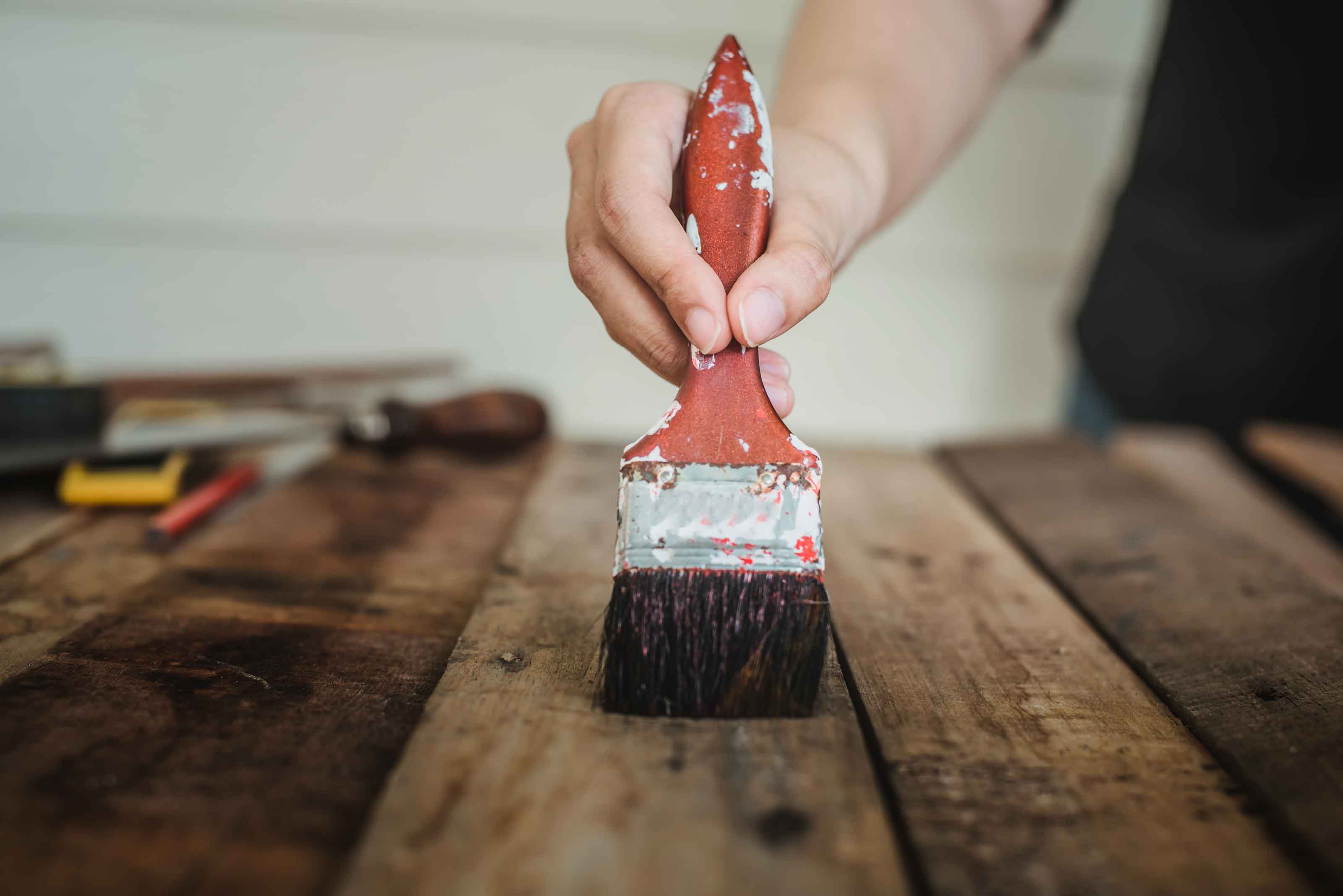
Protect your wooden garden sleepers with an exterior wood oil
You can buy pressure-treated garden sleepers, explains the experts at Garden Sleepers, which protects them from rot. They use the Tanalith ‘E’ Tanalised Pressure Treatment for their products, which also protects against fungus and insect attack as well as offering up to 15 years of protection. This is a popular choice as it's environmentally-friendly and non-Creosote based.
However, if you're working with untreated garden sleepers, you can give them a protective coating at home. There are lots of outdoor wood preservatives available on the market, as well as a modern and safer version of Creosote called Barrettine Creosolve.
You can also use an exterior wood oil. Apply a new coat of it annually (or even twice annually, once in spring and once in autumn) to help your garden sleeper ideas last longer and repel water.

The garden was always a big part of Holly's life growing up, as was the surrounding New Forest where she lived. Her appreciation for the great outdoors has only grown since then. She's been an allotment keeper, a professional gardener, and a botanical illustrator – plants are her passion.
